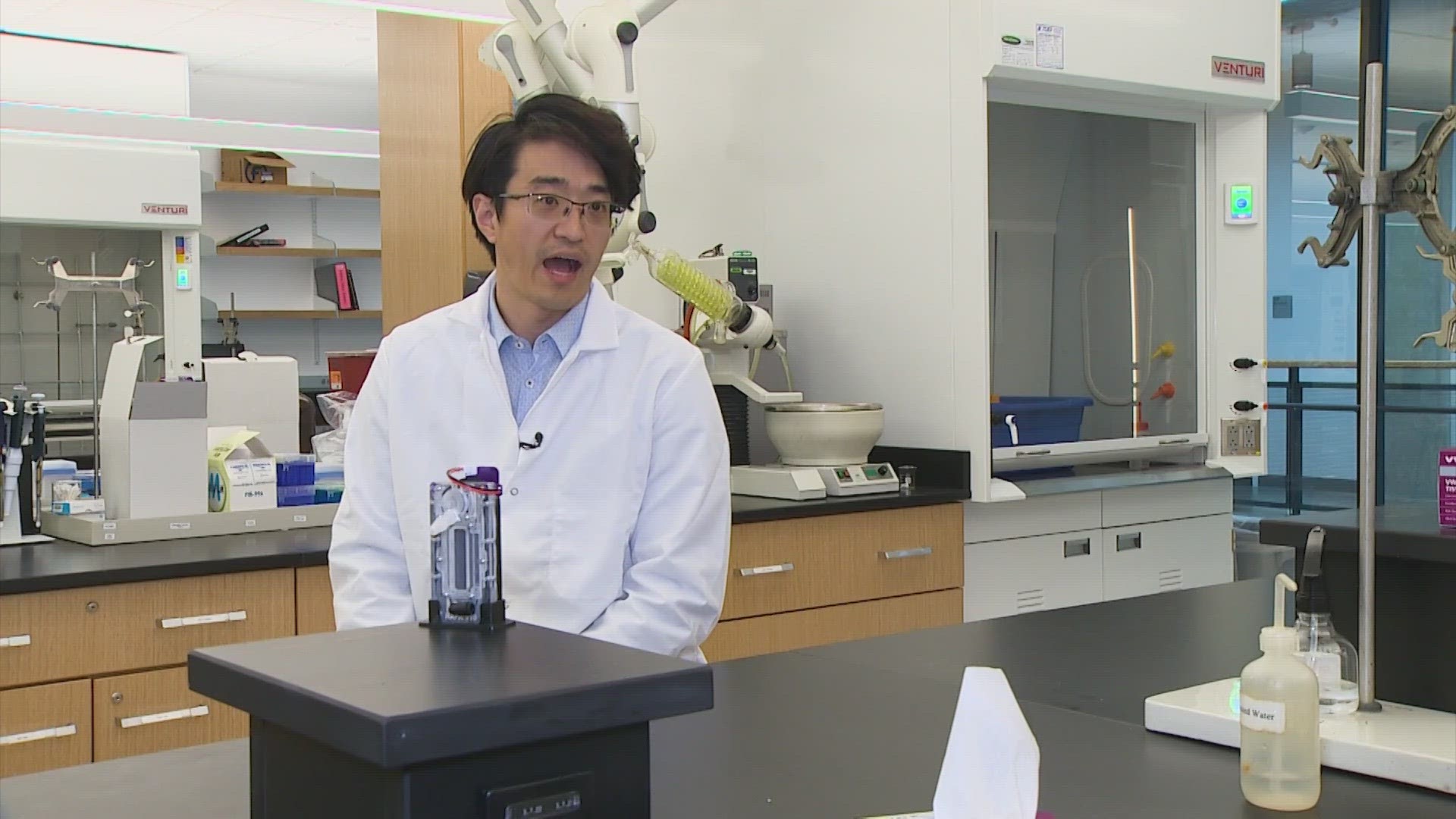SEATTLE — A Seattle researcher and his team could be among the first scientists to develop a portable, artificial kidney that has the potential to help millions of patients undergoing dialysis for kidney disease.
Chronic kidney disease affects an estimated 37 million Americans, according to the Centers for Disease Control and Prevention.
Many patients go through a blood-filtering treatment called dialysis, to stay alive. Some, go through dialysis for several hours, several times a week. But a new invention being developed by a Seattle University researcher hopes to change that.
Dr. Shen Ren is an assistant professor of mechanical engineering at Seattle University. He specializes in heat transfer, thermodynamics and fluid dynamics. But his current project has to do with one of the body's most vital organs: the kidneys.
"What if you have a portable, artificial kidney? You have a portable, dialysis system? That means you can do dialysis anywhere you go," Ren said.
Ren is collaborating with the University of Washington's Center for Dialysis Innovation (CDI) and the Northwest Kidney Centers (NWKC) to develop an artificial kidney.
"We are imagining the final product is about backpack-size," Ren said.
Ren has worked with the CDI since 2017 to redesign a typical dialysis machine operated in a clinic, into one that a patient can carry with them, giving them the convenience and quality of life of someone with a healthy kidney.
"This could potentially save the lives of millions of millions of people around the world," said Becca Cheung.
Cheung has a condition called Alport syndrome that led to kidney failure when she was in her 20s. She underwent peritoneal dialysis before receiving a kidney transplant. But the many hours she spent undergoing dialysis were cumbersome.
"It was very burdensome. I was 25 years old, I felt like I had the entire world ahead of me and as my friends were going out or as I was working kind of as a consultant in structuring my day, I really, really had to play project management around a machine," Cheung said.
Ren said with his prototype, patients can eliminate that burden. It's scaled down from a typical dialysis machine that is not usually mobile. Even the fluid known as dialysate, used to filter the blood, can be reduced from a hundred liters to one, according to Ren.
"This technology is based on photo-oxidation technology," Ren said.
Ren said that technology removes toxins from the patient's blood, which is circulated through the machine. The prototype is still being optimized, has yet to go on clinical trials, and isn't in the medical market right now. But Ren believes it will be a breakthrough.
"Yes we are going to be the first one to make this into the disruptive technology in the market," Ren said.
Cheung said it gives hope.
"No matter what stage of kidney failure you're in, the possibility of having a truly portable device to go with you, to live your day, is extremely empowering for any patient," she said.
Ren's work was made possible by funding from the NWKC via a sub-award through the CDI. Ren said the CDI plans to continue funding the portable kidney project through the summer.

